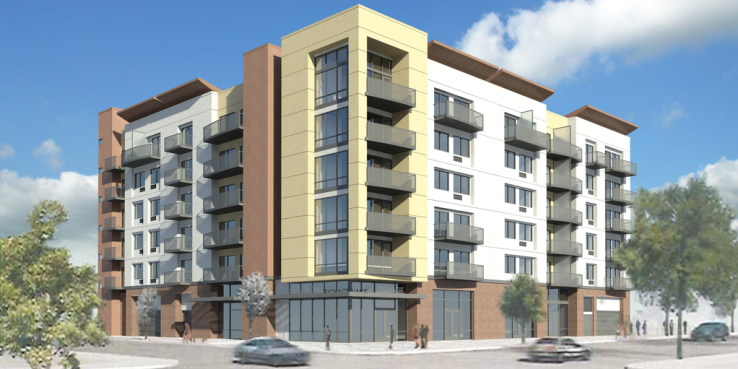Polls this summer showed that Bay Area residents are highly concerned about the cost of housing and may be more willing to accept new development in their neighborhoods and to support higher-density development. Across the Bay Area, Santa Clara County residents were the most supportive of higher-density development. San Francisco housing fights may make the headlines, but the median home sales price in the San Jose metropolitan area (which includes Santa Clara County and San Benito County) is currently the highest in the nation, at $980,000. Among many symptoms of the crisis, the threat of closure hanging over mobile home parks — a type of “naturally affordable” housing — has led to a temporary moratorium on conversions in San Jose.
A new advocacy group launched this year will focus directly on Santa Clara County’s affordable housing issues. Led by former San Jose housing director Leslye Corsiglia, SV@Home will advocate for more policies, programs, funding and land for affordable housing in the county. The group will fill a gap in Santa Clara County, where a number of organizations and individuals have instead had to collaborate on an ad hoc basis to work on specific issues, like the housing impact fee recently enacted in San Jose. While that model was successful, SV@Home will provide a central home for future housing efforts and serve as a resource to the industry and the general public.
One topic SV@Home may be working on in the coming year is a potential Grand Nexus Study that the Silicon Valley Community Foundation is supporting. Modeled on San Mateo County’s 21 Elements initiative, the Grand Nexus Study brings cities and county together to collaborate and share resources to study the possibility of charging developers affordable housing impact fees (for both residential and commercial development) and the feasibility of such fees. The collaboration would reduce the cost per city to do the study, give a consistent look at the issue across cities — yielding a more predictable development environment and a level playing field for cities — and generate more funding for affordable housing across the board.
The aspect of affordable housing that has gotten the most airtime in San Jose and Santa Clara County recently has been the category of people with the highest level of need: homeless individuals and families. The City of San Jose already prioritizes housing that focuses on the homeless, but last year’s closing of the infamous homeless encampment known as “the Jungle” brought a whole new level of attention to the issue. Earlier this year, the county formed a Housing Task Force that will present its findings to the Board of Supervisors in September. The county has also launched an innovative “pay for success” model called Project Welcome Home with nonprofit partner Abode Services. The county will only fund Abode if it succeeds in housing at least 80 program participants for one full year. Destination Home, a local nonprofit that has long focused on the needs of the homeless, recently commissioned a cost study that takes a comprehensive look at what it currently costs to serve the homeless in Santa Clara County — much of it through emergency medical services and the justice system. The study concludes that pursuing a set of “housing first” solutions — getting people into housing before addressing their other social needs — will cost the public less and do more for the homeless.
There are no easy solutions to the housing crisis, and addressing it will require continued long-term planning over the years. With the help of the Knight Foundation, the City of San Jose’s Housing Department will convene a “Housing 2.0” symposium next year to bring Silicon Valley’s innovative thinking to our housing delivery system and make the community a “more balanced, sustainable and equitable Silicon Valley that will be good for everyone.”
Clearly, there’s a lot of new energy being devoted to housing affordability issues in San Jose and Santa Clara County — much of it coming from those who have been working smartly and diligently on these issues for many years. The approaches have evolved in the face of many challenges (loss of redevelopment dollars, decreasing federal funding, lawsuits, etc.), and these leaders persevere and continue to look for fresh and innovative ideas.
SPUR will be launching its first housing policy project in San Jose in the next few months. Stay tuned for more.
